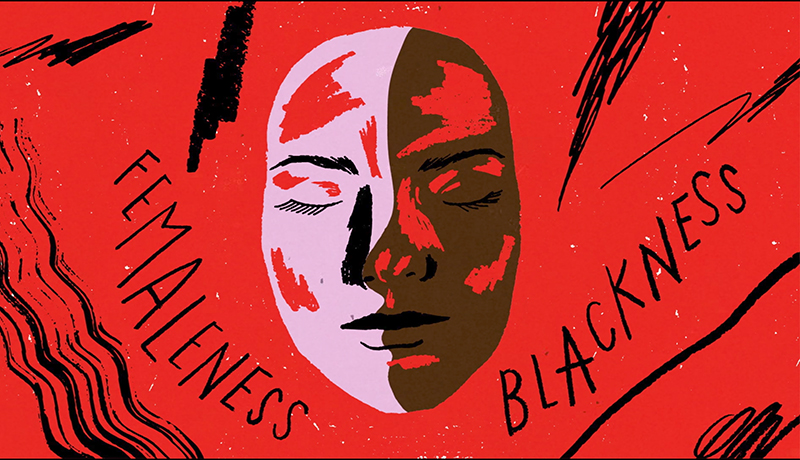Difference between revisions of "Cosmopolitics"
| (One intermediate revision by the same user not shown) | |||
| Line 1: | Line 1: | ||
{{Article | {{Article | ||
| + | |Image=Cosmos.jpg | ||
|Summary=''Cosmopolitanism + politics = cosmopolitics.'' | |Summary=''Cosmopolitanism + politics = cosmopolitics.'' | ||
| − | "Cosmopolitanism is the idea that all human beings are, or could or should be, members of a single community." ([https://en.wikipedia.org/wiki/Cosmopolitanism Cosmopolitanism, n.d.]) Hence, cosmopolitics refers to the political discourse based on said idea. Cosmopolitics are more relevant than ever with people across the planet becoming increasingly connected and | + | "Cosmopolitanism is the idea that all human beings are, or could or should be, members of a single community." ([https://en.wikipedia.org/wiki/Cosmopolitanism Cosmopolitanism, n.d.]) Hence, cosmopolitics refers to the political discourse based on said idea. Cosmopolitics are more relevant than ever with people across the planet becoming increasingly connected and our actions having a wider impact as globalization continues. |
|Article==Cosmopolitics= | |Article==Cosmopolitics= | ||
| Line 37: | Line 38: | ||
==Images== | ==Images== | ||
| + | |||
| + | 2010. Cosmos. [image] Available at: <https://www.e-ir.info/wp-content/uploads/cosmos.jpg> [Accessed 23 November 2020]. | ||
2020. [image] Available at: <https://redvince.wordpress.com/2016/12/22/we-have-to-resist-a-conversation-with-rebecca-solnit-longreads/> [Accessed 17 November 2020]. | 2020. [image] Available at: <https://redvince.wordpress.com/2016/12/22/we-have-to-resist-a-conversation-with-rebecca-solnit-longreads/> [Accessed 17 November 2020]. | ||
Latest revision as of 20:33, 23 November 2020
The wikipage input value is empty (e.g. SomeProperty::, [[]]) and therefore it cannot be used as a name or as part of a query condition.
Cosmopolitics
Feminist Cosmopolitics
The thought behind cosmopolitics, according to feminist philosopher and chemist Isabelle Stengers, is that decisions must take place in the presence of those who will bear their consequences (Haraway, 2016). This refers to the idea of the commons. Both Rebecca Solnit and Silvia Federici, both feminist writers, deal with this topic in several of their works.
Rebecca Solnit
Solnit explores the connections between the structural discrimination of marginalized groups and power elites and the response to disasters. She claims that we can witness the power of community, especially after disasters, when the public organizes themselves in order to help each other (Taylor, 2009). Their ego becomes less important when it comes to the fight for survival and they tend to use a common-ist approach to disaster response. Institutional authorities, on the contrary, often fail in those situations. They imagine that not the public is in danger but it is also a source of danger, leading to disaster response in destructive ways in order to protect their property. This result is what Solnit calls „elite panic“ (Taylor, 2009). She says that we need a different view on human nature that goes against the current notion that humans are inherently bad because that only plays into the narrative that authoritarian power elites cultivate (Taylor, 2009).
Silvia Federici
Federici examines the role of women when it comes to recreating the commons in her work. She claims that capitalism appropriates the feminist agenda by exploiting women’s wish for autonomy in order to integrate them into the capitalist system which totally goes against equality and therefore against the commons (The People's Forum NYC, 2019). In poorer communities, however, women are on the front lines of recreating the commons by commoning what she calls reproductive activities (The Laura Flanders Show, 2019), such as cooking, gardening, taking care of garbage, etc, i.e. all activities that ensure the continuation of human life. Federici was able to witness this herself when visiting communities in South America, in areas where the state does not take care of the people. She shares an anecdote of a woman asking her what her community in the United States is like. When she responded that these kinds of communities do not really exist in the US, the woman reacted in shock and wondered who would take care of Federici in situations of emergency. Federici concludes that capitalism uses debt to attack community and solidarity relationships which makes it harder for individuals to confront the state (The Laura Flanders Show, 2019). Therefore, we need to redefine wealth, value, and social relations in order to regain decision-making power.
Sources
Literature
En.wikipedia.org. n.d. Cosmopolitanism. [online] Available at: <https://en.wikipedia.org/wiki/Cosmopolitanism> [Accessed 23 November 2020].
Haraway, D., 2016. Staying With The Trouble. Making Kin In The Chthulucene. London: Duke University Press, p.12.
Taylor, A., 2009. Rebecca Solnit by Astra Taylor. [online] Available at: <https://bombmagazine.org/articles/rebecca-solnit/> [Accessed 13 October 2020].
The People’s Forum NYC, 2019. 8 Minutes with Silvia Federici. [video] Available at: <https://www.youtube.com/watch?v=CDf0NDNfWEQ> [Accessed 13 October 2020].
The Laura Flanders Show, 2019. Commoning Our Cities: Mary Miss, Silvia Federici, Peter Linebaugh. [video] Available at: <https://www.youtube.com/watch?v=qCmJcPkpI98> [Accessed 13 October 2020].
Images
2010. Cosmos. [image] Available at: <https://www.e-ir.info/wp-content/uploads/cosmos.jpg> [Accessed 23 November 2020].
2020. [image] Available at: <https://redvince.wordpress.com/2016/12/22/we-have-to-resist-a-conversation-with-rebecca-solnit-longreads/> [Accessed 17 November 2020].
2020. Silvia Federici En 2014. [image] Available at: <https://es.wikiquote.org/wiki/Silvia_Federici> [Accessed 17 November 2020].Links
CONTRIBUTE
Feel free to contribute to Beyond Social.













